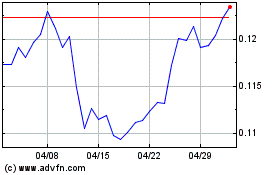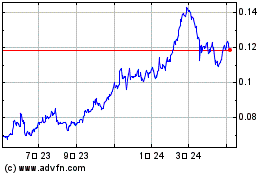Bitcoin ETF By BlackRock Registers First Daily Net Inflow In 3 Weeks: What To Know
2024年9月18日 - 8:00AM
NEWSBTC
BlackRock’s iShare Bitcoin Trust (IBIT) registered its first daily
net inflow in three weeks, leading to US spot Bitcoin
exchange-traded-funds (ETFs) witnessing a combined net inflow of
$12.8 million, data from Farside Investors confirms. BlackRock’s
Spot Bitcoin ETF Attracts Net Inflows, How About Other ETFs?
BlackRock forayed into the Bitcoin ETF space when the US Securities
and Exchange Commission (SEC) approved IBIT in January 2024. Dubbed
the world’s largest asset manager with a total
asset-under-management (AUM) of $9 trillion, BlackRock’s entry into
the nascent crypto ETF ecosystem was met with much enthusiasm by
investors as it not only brought a degree of sophistication but
also exhibited institutional approval toward the industry. Related
Reading: BlackRock Calls Bitcoin ‘Hedge Against Global Disorder’,
Analyst Sets $600,000 Target Yesterday, the asset manager’s
regulated financial product pulled $15.8 million in daily net
inflows, a first since August 26, 2024. The net inflow of funds
into IBIT was strong enough to push the wider US spot Bitcoin ETF
market into green territory, with a combined net inflow of $12.8
million. IBIT’s three weeks of no net daily inflows consisted of 11
days with zero flows, while two days – August 29, and September 9 –
saw net daily outflows to $13.5 million and $9.1 million,
respectively. Looking at the performance of other spot Bitcoin
ETFs, Grayscale’s GBTC product witnessed a net daily outflow of
$20.8 million. At the same time, Fidelity’s FBTC, Franklin
Templeton’s EZBC, and VanEck’s HODL experienced a net daily inflow
of $5.1 million, $5 million, and $4.9 million, respectively.
According to data from cryptocurrency ETF tracker SoSoValue,
BlackRock’s IBIT reigns supreme among US-based spot Bitcoin ETFs,
with an enviable cumulative net inflow of $20.9 billion since the
product’s inception early this year. FBTC follows this with $10.1
billion, Ark and 21Shares’ ARKB with $2.6 billion, and Bitwise’s
BITB with $2.2 billion. In contrast, GBTC has witnessed a
cumulative net outflow of $20 billion. Analysts blame the product’s
exorbitant fee of 1.5% as a major reason for GBTC’s performance to
date. For comparison, IBIT has a fee of 0.21%. Spot Ethereum ETFs
Continue Their Lackluster Performance While spot Bitcoin ETFs ended
the day with a combined net inflow of $12.8 million, spot Ethereum
ETFs experienced a combined net outflow of $9.4 million. Akin to
its Bitcoin ETF, Grayscale’s Ethereum ETF (ETHE) witnessed a net
daily outflow of $13.8 million, followed by Bitwise’s ETHW with a
$2.1 million net outflow. Only Grayscale’s mini Ethereum ETF (ETH)
successfully attracted net inflows worth $2.3 million. Related
Reading: Ether Liquidity Plummets 40% On Exchanges After ETF Debut
Since their approval in May 2024, Ethereum ETFs haven’t performed
as well as Bitcoin ETFs when attracting significant inflows. The
tepid performance of Ethereum ETFs is reflected in the digital
asset’s price as it continues to underperform against Bitcoin.
Ethereum trades at $2,307 at press time, slightly up by 0.6% in the
past 24 hours. Featured image from Unsplash, Chart from
Tradingview.com
TRON (COIN:TRXUSD)
過去 株価チャート
から 8 2024 まで 9 2024

TRON (COIN:TRXUSD)
過去 株価チャート
から 9 2023 まで 9 2024
